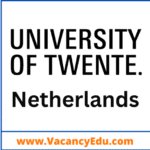University of Liverpool, England invites online Application for number of Fully Funded PhD Degree at various Departments. We are providing a list of Fully Funded PhD Programs available at University of Liverpool, England.
Eligible candidate may Apply as soon as possible.
(01) PhD Degree – Fully Funded
PhD position summary/title: Equine antimicrobial use and resistance in UK breeding Thoroughbreds and neonates
This PhD project aims to develop research methods for a comprehensive understanding of AMU and AMR in Thoroughbred horses, particularly in the breeding industry.
Using data from the University of Liverpool’s Equine Veterinary Surveillance Network (EVSNET), the project will analyse electronic health records and diagnostic lab results to assess AMU and AMR patterns. This project will involve the development of large language models that can be used to categorise reproductive and neonatal conditions from free-text clinical records to allow for contextualisation of AMU quantity metrics. The project will evaluate bacterial C&AST methods, analyse AMR patterns from laboratory data submissions, and characterise resistance in selected bacterial isolates using techniques such as MALDI-TOF, minimum inhibitory concentration (MIC) testing, and fourier transform infrared (FTIR) spectroscopy. It will also explore ways to support more judicious AMU through improved methodology standardisation and reporting practices in diagnostic laboratories.
Deadline : 5 September 2025
(02) PhD Degree – Fully Funded
PhD position summary/title: Multimodal neuroimaging (EEG and fMRI) of multisensory interactions in tactile and olfactory perception
This PhD project investigates how the brain integrates tactile (touch) and olfactory (smell) information, focusing on how this interaction influences emotional and behavioural responses. Using advanced neuroimaging techniques like EEG and fMRI, the research aims to uncover the neural mechanisms behind this sensory integration, which remains poorly understood. Conducted through a collaboration between the University of Liverpool and Unilever, the project combines academic research with real-world applications.
Deadline : 26 September 2025
View All Fully Funded PhD Positions Click Here
(03) PhD Degree – Fully Funded
PhD position summary/title: Instrumentation studies for AWAKE Run 2c
AWAKE is the world’s first proton-driven plasma wakefield acceleration experiment. It utilizes 400 GeV proton bunches from the CERN SPS to drive plasma wakefields with an amplitude of ~ GV/m (which are orders of magnitude higher than conventional accelerators), which then accelerate externally injected 10-20 MeV electrons up to several GeVs in a 10 m long plasma.
Deadline : 19 December 2026
(04) PhD Degree – Fully Funded
PhD position summary/title: The contribution of Social and Solidarity Economies to Just Sustainability Transformations in the North of England.
You will explore the transformative potential of social, solidarity, circular, and other grassroots economic initiatives such as repair cafés, community energy projects, alternative food networks, social enterprises, and transition towns to Just Sustainability Transformations in the North of England. As part of the JUST Centre team, your PhD will help marginalised communities shape the transformation of the North of England to a more just, equitable and sustainable future.
Deadline : 15 September 2025
(05) PhD Degree – Fully Funded
PhD position summary/title: Decarbonising global supply chains: tools for trade-off decision-making
This project will develop and validate a conceptual decision intelligence framework and an operational DDSS, to guide stakeholders in making their dynamic trade-off decisions while they are in the process of reconfiguring GSCs (Table 1, Study 1). The developed DDSS will be validated through its application to the critical raw materials (strategic raw materials that are at critical risk of short supply) at the minerals-energy nexus, and to the petrochemical industries GSCs, which have significant scope for reconfiguring to decarbonise by making dynamic trade-off decisions (Table 1, Studies 2 and 3).
Deadline : 1 September 2025
Polite Follow-Up Email to Professor : When and How You should Write
Click here to know “How to write a Postdoc Job Application or Email”
(06) PhD Degree – Fully Funded
PhD position summary/title: Transition-to-turbulence in partially filled pipes
This funded project will give the successful candidate the opportunity to leverage physical infrastructure and domain expertise unique to Liverpool, where detailed characterisation of the flow in both laminar and turbulent partially filled pipes was previously conducted. Building upon this foundation, new experiments will be conducted to determine the minimum Reynolds number, (or Froude number,) that signals the onset of transition for given fill heights and the minimum (or) where turbulence becomes self-sustaining.
Deadline : 18 February 2026
(07) PhD Degree – Fully Funded
PhD position summary/title: Rydberg Quantum Sensing Technologies for Resilient Communications
Developing sustainable ICT and future telecommunications systems (e.g., 6G, quantum comms, AI-assist) with a bold focus on resilience has become a key national priority. Congested radio spectrum and coexistence of broadband wireless systems produce interferences and increase the real risk of failing future telecommunication infrastructure. Highly sensitive receivers and the ability to measure weak signals (comparable with noises and interferences) have become a very challenging metrological problem.
Recently, non-invasive Rydberg quantum sensing technology (RQST) has emerged as an enabling paradigm that offers highly sensitive and traceable measurements of RF fields over a wide frequency range and have become a very attractive solution. Different designs are reported but their insight understanding, especially from metrology perspective is still very limited.
Aligned with the EPSRC priority areas in digital futures and quantum technologies, this project is to conduct a comprehensive study on RQST using both theoretical and experimental approaches with the main objectives: 1-Study the RQST and identify the suitable frequency range and achievable sensitivity; 2-Develop state-of-the-art Rydberg quantum sensing testbed, evaluate its measurement accuracy and sensitivity; 3-Apply the RQST for resilient communications and identify its advantages and limitations (e.g., sensitivity, stability, traceability in complex environments); 4-Develop methodologies for characterising resilient communication performance of emerging telecommunication systems in complex electromagnetic environments using the RQST.
Deadline : 30 September 2025
(08) PhD Degree – Fully Funded
PhD position summary/title: Non-invasive strategies for the mobilisation and washout of radioactive heels and residues from vessels and pipework
Within this project, you will advance operational effectiveness and enhance sustainability of decommissioning operations of the UK legacy nuclear sites. You will achieve so by using state-of-the-art laboratory facilities and cutting-edge, high-performance software for Computational Fluid Dynamics (CFD). Your activities as a Postgraduate student will include: working in contact with the Nuclear Decommissioning authority (NDA), a placement at the SLC or the supply chain (e.g.: Sellafield ltd), and participating to SATURN CDT’s activities.
Deadline : 18 February 2026
Click here to know “How to Write an Effective Cover Letter”
(09) PhD Degree – Fully Funded
PhD position summary/title: Linking historic, contemporary, and future inspection data for improved asset monitoring
This fully-funded project will see you solving issues related to how machines and infrastructure are inspected to find degradation and damage. This is a vital part of the operation of any engineered system and the field of non-destructive inspection is of importance across all industries. The project is sponsored by the Nuclear Decommissioning Authority (NDA), the organisation charged with decommissioning and cleaning up the UK’s nuclear sites at the end of their life.
Deadline : 18 February 2026
(10) PhD Degree – Fully Funded
PhD position summary/title: Hybrid Glass-Coated 2D Nanomaterials: Advancing Sensing Technologies
This funded PhD project aims to develop hybrid glass-transition metal dichalcogenide (HG-TMDC) composites to create cost-effective, high-performance gas sensors suitable for detecting toxic gases and monitoring air quality. The successful applicant will optimise gas interactions through hybrid glass coatings, contributing to public health and environmental sustainability.
Deadline : 1 October 2025
Connect with Us for Latest Job updates
(11) PhD Degree – Fully Funded
PhD position summary/title: Enhancing the resilience of coastal embankments using satellite monitoring
The impact of coastal floods on ageing civil infrastructure makes them vulnerable to failure, especially as more extreme wet-dry cycles push engineered slopes into more destabilising conditions. Whilst sensor-based monitoring systems are prevalent, these are expensive to install, operate and maintain, which limits them to specific locations. Remote satellite monitoring offers a new method for detecting potential failures and enhancing the resilience of civil infrastructure.
This project will explore using remote satellite monitoring data to predict embankment failures. It proposes to use InSAR data from open-access Sentinel-1 ESA data (used for monitoring ground movements), optical multi-spectral data from Sentinel-2 (that can remotely monitor groundwater levels), and knowledge about ground conditions and hydrogeological information to create a new risk model to inform asset owners of the areas at the highest risk of failure. This will be achieved at a network scale using machine learning methods, trained on a series of known previous failures during which all the site-specific data is available, with the intention of scaling the final methods up for application at a national scale.
Deadline : 29 August 2025
Polite Follow-Up Email to Professor : When and How You should Write
(12) PhD Degree – Fully Funded
PhD position summary/title: Eco-Friendly Modifiers for Sustainable Asphalt Pavements: Enhancing Ageing Resistance and Adhesion
Road transport infrastructure plays a crucial role in the transition towards sustainability and decarbonisation. Asphalt, composed of mineral aggregates and bitumen, remains the dominant surfacing material due to its excellent performance. The use of crumb rubber from scrap tyres to modify bitumen has gained popularity within the circular economy framework, offering significant economic and environmental benefits.
However, Crumb Rubber Modified Bitumen (CRMB) faces two critical challenges. First, CRMB is highly susceptible to aging under heat, oxygen, and ultraviolet (UV) exposure, leading to deterioration and reduced pavement durability. Second, poor adhesion between bitumen and aggregates, which worsens over time, results in binder peeling, cracking, and pothole formation, negatively impacting driving safety and increasing maintenance costs. To address these challenges, this research will develop sustainable and durable asphalt pavements using industrial waste-modified CRMB and organic-modified aggregates.
Deadline : 1 October 2025
(13) PhD Degree – Fully Funded
PhD position summary/title: Using Artificial Intelligence to study cellular changes in high consequence viral infections
This project is based at the University of Liverpool and focuses on using artificial intelligence and machine learning to study cellular morphology during infection with high-consequence viruses such as SARS-CoV-2, MERS, and Ebola. The student will employ confocal and live-cell imaging, sequencing, and AI techniques to quantify and analyse how viruses manipulate cells and to evaluate the effectiveness of medical countermeasures.
Deadline : 22 August 2025
(14) PhD Degree – Fully Funded
PhD position summary/title: Plasma catalysis over zeolites for the conversion of plastic waste into sustainable aviation fuels
This funded PhD project will explore the integration of plasma catalysis with zeolite-based catalysts to optimize the conversion of plastic waste into valuable fuels and chemicals. Two project project will be structured across four years, with the first two years spent at the University of Liverpool and the following two years at National Tsing Hua University in Taiwan.
Deadline : 1 October 2025
(15) PhD Degree – Fully Funded
PhD position summary/title: Advanced AI-empowered Secure, Green, and Robust 6G networks
With the rapid development of wireless technologies, it is expected that future telecommunication systems can serve an enormous number of heterogeneous wireless devices with high-rate and low-latency communications. However, they face critical challenges that need to be addressed to ensure their successful deployment and operation.
Specifically, wireless communication is highly vulnerable to radio attacks, particularly eavesdropping attacks. Using cryptographic techniques is a common countermeasure, but the heterogeneity of future networks poses challenges to the key distribution and management. Moreover, with quantum computing, encryption techniques will soon become defenceless. Physical-layer security solutions, such as friendly jamming and beamforming, have also been proposed; however, they require prior information about eavesdroppers, which is often unavailable.
Moreover, the gigantic increase in network traffic and the deployment of a massive number of cells, edge computing nodes, and technologies like massive MIMO and THz communication, will add computational burdens to systems, resulting in extremely high energy consumption. To meet sustainability goals, one potential approach is adjusting the transmit power of BSs based on users’ demands. Nevertheless, optimising the power control policy for BSs serving diverse and highly dynamic users is challenging.
In addition, it’s expected that AI will enable zero-touch management in 6G networks. However, current AI approaches usually require massive training data and long training time. This may prolong end-to-end communication latency, increase energy consumption, and hinder 6G applications. Moreover, traditional AI approaches are trained on specific environments/scenarios, making them less effective in new system conditions. Unfortunately, this is likely the case in future communication systems where networks are highly dynamic.
This PhD project aims to address the above challenges by developing:
- A novel approach to exploit co-channel interference when reusing resource blocks to disrupt the signal reception at eavesdroppers without requiring their prior information
- A federated deep reinforcement learning-based approach to jointly optimise user association, resource allocation, and power control while considering security, energy efficiency, and communication resilience of the system
- Quantum-inspired neural networks to reduce the number of training parameters and energy consumption while quickly adapting to new conditions and maintaining good performance.
Deadline : 1 October 2025
(16) PhD Degree – Fully Funded
PhD position summary/title: Understanding Microbial Colonisation of Surfaces via Correlative Spectroscopic Imaging
Microbial attachment to surfaces is the first step to biofilm formation, sophisticated microbial communities encased in a protective matrix. The impact of biofilms on global economies is almost $5trillion per annum. Biofilm prevention is key for multiple industrial sectors. This PhD project aims to improve understanding of microbe-surface interactions and attachment using advanced imaging techniques.
Deadline : 1 September 2025
(17) PhD Degree – Fully Funded
PhD position summary/title: Understanding, and high-throughput development, of the formulation of spray coating solutions for industrial applications
The project will contribute to understanding the process of, and development of new chemistries for, depositing functional coatings on glass with a major industrial collaborator (NSG/Pilkington). The project will make use of state-of-the-art characterisation to understand the process and high throughput methodologies to develop new coating formulations and materials.
Deadline : 22 August 2025
(18) PhD Degree – Fully Funded
PhD position summary/title: Solution synthesis of multi-anion functional materials
Solution synthesis routes to functional materials offer opportunities to new crystal structures and low temperature conditions not possible through sub-solidus solid state reactions. This project will explore solution synthesis of materials containing multiple anions for functions such as solar absorption or ionic conductivity that are central to net zero technologies. The selection of experimental targets will be informed by artificial intelligence and computational assessment of candidates, or by attempts to synthesise materials typically prepared through solid state routes. The resulting materials will be experimentally studied to assess their suitability in a wide range of applications, combining our broad materials characterisation expertise with that of our international industrial and academic collaborators. The student will thus both develop a strong materials synthesis, structural characterisation and measurement skillset, and the ability to work with colleagues across disciplines in a research team using state-of-the-art materials design methodology.
The project is based in the Materials Innovation Factory at the University of Liverpool, a state-of-the-art facility for the digital and automated design and discovery of materials. The project will make use of tools developed in the multi-disciplinary EPSRC Programme Grant: “Digital Navigation of Chemical Space for Function” and the Leverhulme Research Centre for Functional Materials Design, that seek to develop a new approach to materials design and discovery, exploiting machine learning and symbolic artificial intelligence, demonstrated by the realisation of new functional inorganic materials. Examples include the first tools to guarantee the correct prediction of a crystal structure (Nature 68, 619, 2023), and to learn the entirety of known crystalline inorganic materials and guide discovery (Nature Communications 12, 5561, 2021).
Deadline : 31 August 2025
(19) PhD Degree – Fully Funded
PhD position summary/title: Single-Molecule Electroluminescent Devices as Single-Photon Sources
Recent advancements in nanoscience have enabled the reliable and reproducible wiring of molecules into electrical circuits. A single molecule can be sandwiched between two metallic electrodes (a “molecular junction”) and an electrical current can be driven through, enabling the assessment of their electronic and charge transport properties at the smallest scale possible. As electrons flow through the molecule, a tiny fraction of their energy is slowly and steadily converted into light – single-molecule junctions behave like an extremely small OLED. The structure of the molecule dictates the final properties of the optoelectronic device in terms of emission wavelength and intensity.
The purpose of this project is to systematically study light emission from single molecule devices, with the aim of developing a molecular, on-demand, single-photon source that can be operated reliably at room temperature.
As part of the studentship, the successful candidate will:
- Gain expertise in nano- and micro-fabrication, self-assembly, molecular photonics and molecular electronics
- Contribute to the activities of a diverse research group operating at the boundary between chemistry and nanotechnology, ranging from advanced nanofabrication to cryogenic measurements, pioneering nanoscale characterisation and chemical synthesis
- Gain interdisciplinary experience by being involved in our collaborative network with partners from all corners of the world.
Deadline : 30 September 2025
How to increase Brain Power – Secrets of Brain Unlocked
(20) PhD Degree – Fully Funded
PhD position summary/title: Selective C-H functionalisations in industrially important alkylarenes
This PhD project will focus on designing conceptually new metal-mediated selective C-H functionalisations of arenes without directing groups. This will be achieved by exploring the unique reactivity of transition metal complexes that coordinate arenes in a rare eta-4 mode. This coordination mode bends the aromatic ring and enables the arene to undergo a range of unconventional C-H (e. g. J. Am. Chem. Soc. 2022, 144, 11564) and C-C bond activations (e. g. J. Am. Chem. Soc. 2019,141, 6048; Angew. Chem. Int. Ed. 2017, 56, 3266). These approaches have an excellent potential for the development of synthetically useful arene functionalisations. The project will involve synthetic and mechanistic studies, which will be supported by DFT computations in collaboration with our UoL colleagues.
Deadline : 31 August 2025
(21) PhD Degree – Fully Funded
PhD position summary/title: Organic Radicals and Diradicaloid for Single-Molecule Electronics and Quantum Information Processing
We have pioneered the synthesis and characterisation of organic radicals as single molecule junctions (Angewandte Chemie 2022), demonstrating their unique promise, along with enhanced, non-ohmic/non-linear charge transport (Angewandte Chemie 2024), and with very interesting transistor-like behaviour. However, there are still challenges and unknowns that we want to tackle and explore.
With this project, we want to focus on non-Kekulé radicals: conjugated hydrocarbon that cannot be assigned a classical Kekulé structure. These materials are reactive and tend to decompose at room temperature, but we have developed several strategies towards the isolation of bench-stable derivatives which will be applied in this work.
Through this studentship, the successful candidate will:
- Gain expertise in the synthesis of organic radicals, diradicals and radicaloids
- Contribute to the activities of a diverse research group operating at the boundary between chemistry and nanotechnology, ranging from advanced nanofabrication to cryogenic measurements, pioneering nanoscale characterisation and chemical synthesis
- Gain interdisciplinary experience by being involved in our collaborative network with partners from all corners of the world.
Some teaching duties may be required.
Deadline : 30 September 2025
(22) PhD Degree – Fully Funded
PhD position summary/title: Mapping Bacterial Interactions in Biofilm Colonies
Biofilms are complex communities of microorganisms often attached to a surface and encased within protective matrix. They represent a key challenge in healthcare, due to their increased tolerance to treatments. Thus, development of biofilm prevention strategies is crucial. This project aims to combine advanced imaging and spectroscopic techniques to better understand early biofilm formation events.
Deadline : 1 September 2025
(23) PhD Degree – Fully Funded
PhD position summary/title: Improving Mechanistic Understanding of the Hydrogen Evolution Reaction (HER) using High-Entropy Alloy (HEA) Catalysts via Computational Techniques
High-entropy alloys (HEAs) have emerged as promising electrocatalysts for the hydrogen evolution reaction (HER), exhibiting distinctive catalytic behaviour compared to conventional catalysts. Unlike pure metallic elements, the HER activity of elements within an HEA is significantly altered due to complex inter-element interactions affected by different composition, atom distribution and facet exposure. These interactions might influence catalysts’ crystal structure, electronic structure, and further HER activity. However, the mechanistic understanding for enhanced HER performance using HEA catalysts with the consideration of component, atom distribution and facets effects remains incomplete and unclear.
In this project, we will employ density functional theory (DFT) combined with machine-learning interatomic potentials (MLIPs) to investigate the interplay between inter-element interactions, structural and electronic properties of HEAs and their root causes affecting HER activity. Furthermore, we will develop simple chemical models and descriptors that elucidate these relationships, providing a deeper understanding of the principles governing HER activity in HEAs and aim at offering rational designs of optimal HEA compositions and structures for efficient HER catalytic performance.
The successful candidate will spend two years at NTHU under the direct supervisions of Prof Chen, benefiting from her experience in applying computational methods to surface science and the hydrogen evolution reaction. The student will then complete their studies at the University of Liverpool. Dr Dyer will supervise the student during this time, introducing skills in working with machine learned interatomic potentials and crystal structure prediction.
Deadline : 1 October 2025
(24) PhD Degree – Fully Funded
PhD position summary/title: High-throughput exploration of multicomponent metal organic frameworks (MOFs)
This project will harness recent advances in robotics to efficiently explore the discovery of new multicomponent MOFs. The student will design and execute experiments on state-of-the-art robotic synthesis platforms, develop the required measurement approaches to extract and analyse data from the arrays of materials.
Training in robotics, chemistry and structural characterisation will be given. The project will develop protocols to identify materials with potential application gas separation (focusing on capturing carbon dioxide from flue gas and challenging separations of hydrocarbons) and catalysis (transformation of biomass for next-generation clean manufacturing) applications that will focus the large numbers of new materials identified for further detailed exploration. The project is driven by a vision of a future where research scientists will make routine, broad use of robotics as part of the discovery of advanced materials, and thus the project will prepare the student for a wide range of industrial and academic career opportunities.
Experimental work will be enabled by instrumentation and methods that are already established and available in the research group of Prof Rosseinsky, together with world-class characterization and synthetic facilities available within the Materials Innovation Factory at the University of Liverpool, a state-of-the-art facility for the digital and automated design and discovery of materials.
Deadline : 31 August 2025
(25) PhD Degree – Fully Funded
PhD position summary/title: Experimental Discovery of New Ionic Conducting Materials
This project tackles the discovery of new materials for solid state batteries that will have higher energy densities and superior safety to current technologies. It is based on the design and discovery of new inorganic solids with unprecedented structures that will allow new mechanisms for fast ion motion in solids.
Deadline : 31 August 2025
(26) PhD Degree – Fully Funded
PhD position summary/title: Electrochemistry of Microbial Cells
Bacteria are capable of complex metabolic activities which affect them and the environment surrounding them, for example inducing corrosion. Our understanding of microbial-surface electrochemistry is lacking, which limits our ability to deal with its consequences. This project aims to improve understanding of the fundamental phenomena of microbial electrochemistry from single-cell to population levels using advanced characterisation techniques.
Deadline : 1 September 2025
(27) PhD Degree – Fully Funded
PhD position summary/title: Discovery of new inorganic materials for net zero applications
The experimental discovery of new inorganic materials shows us how crystal structure and chemical composition control physical and chemical properties. It is therefore critical for our ability to design functional materials with the properties we will need for the next zero transition. Examples include ion motion and redox chemistry in batteries for transport and grid storage, solar absorbers for photovoltaic technologies, rare-earth-free magnets for wind power, catalysts for biomass conversion or water splitting for hydrogen generation, components in low-energy information technology and myriad other unmet needs.
This PhD project will tackle the synthesis in the laboratory of inorganic materials with unique structures that will expand our understanding of how atoms can be arranged in solids. The selection of experimental targets will be informed by artificial intelligence and computational assessment of candidates, working with a multidisciplinary team of researchers to maximise the rate of materials discovery. The resulting materials will be experimentally studied to assess their suitability in a range of applications, including targeting Li and Mg transport for advanced solid state battery materials. The student will thus both develop a strong materials synthesis, structural characterisation and measurement skillset, and the ability to work with colleagues across disciplines in a research team using state-of-the-art materials design methodology. The success of this approach is demonstrated in a range of papers (Science, 2024, 383, 739-745; J. Am. Chem. Soc., 2022, 144, 22178-22192; Science, 2021, 373, 1017-1022).
The project is based in the Materials Innovation Factory at the University of Liverpool, a state-of-the-art facility for the digital and automated design and discovery of materials. The project will make use of tools developed in the multi-disciplinary Engineering and Physical Sciences Research Council (ESPRC) Programme Grant: “Digital Navigation of Chemical Space for Function” and the Leverhulme Research Centre for Functional Materials Design, that seek to develop a new approach to materials design and discovery, exploiting machine learning and symbolic artificial intelligence, demonstrated by the realisation of new functional inorganic materials. Examples include the first tools to guarantee the correct prediction of a crystal structure (Nature 68, 619, 2023), and to learn the entirety of known crystalline inorganic materials and guide discovery (Nature Communications 12, 5561, 2021). You will also make use of the first tools that use explainable symbolic AI to explore chemical space (Clymo, J., et al. Angew. Chem. Int. Ed., 2024) You will thus gain understanding of how the artificial intelligence and computational methods developed in the team accelerate materials discovery, and be able to contribute to the development of these models, which are designed to incorporate human expertise.
Deadline : 31 August 2025
(28) PhD Degree – Fully Funded
PhD position summary/title: Automated solid state synthesis robotic workflow
This funded PhD project will develop and exemplify a robotic workflow to perform solid state chemistry reactions. This will consist of an automated weighing and mixing stage, coupled with a high temperature furnace to perform the reactions.
Deadline : 31 August 2025
(29) PhD Degree – Fully Funded
PhD position summary/title: Metabolic Network Approaches for Modelling the Human Microbiome
This PhD explores how microbial communities interact and exchange metabolites to maintain health. Combining cutting-edge microbiome data with metabolic modelling, the project offers a unique opportunity to drive understanding and innovations computational biology and academic–industrial collaboration.
Deadline : 31 August 2025
About The University of Liverpool, England –Official Website
The University of Liverpool (abbreviated UOL; locally known as The Uni of) is a public research university in Liverpool, England. Founded as a college in 1881, it gained its Royal Charter in 1903 with the ability to award degrees, and is also known to be one of the six ‘red brick’ civic universities, the first to be referred to as The Original Red Brick. It comprises three faculties organised into 35 departments and schools. It is a founding member of the Russell Group, the N8 Group for research collaboration and the university management school is triple crown accredited.
Ten Nobel Prize winners are amongst its alumni and past faculty and the university offers more than 230 first degree courses across 103 subjects. Its alumni include the CEOs of GlobalFoundries, ARM Holdings, Tesco, Motorola and The Coca-Cola Company. It was the UK’s first university to establish departments in oceanography, civic design, architecture, and biochemistry (at the Johnston Laboratories). In 2006 the university became the first in the UK to establish an independent university in China, Xi’an Jiaotong-Liverpool University, making it the world’s first Sino-British university. For 2021–22, Liverpool had a turnover of £612.6 million, including £113.6 million from research grants and contracts. It has the seventh-largest endowment of any university in England. Graduates of the university are styled with the post-nominal letters Lpool, to indicate the institution.
Disclaimer: We try to ensure that the information we post on VacancyEdu.com is accurate. However, despite our best efforts, some of the content may contain errors. You can trust us, but please conduct your own checks too.
Related Posts
- 11 Funded PhD Opportunities at Umea University, Sweden

- 18 Funded PhD Opportunities at Stockholm University, Sweden

- 18 Funded PhD Opportunities at Lund University, Scania, Sweden

- 18 Funded PhD Opportunities at University of Cambridge, United Kingdom

- 23 Funded PhD Opportunities at Swedish University of Agricultural Sciences, Sweden

- 16 Funded PhD Opportunities at University of Twente, Netherlands

- 27 Funded PhD Opportunities at Ulster University, Ireland

- 31 Funded PhD Opportunities at University of Dundee, Scotland, United Kingdom

- 28 PhD Positions-Fully Funded at University of Freiburg, Germany











